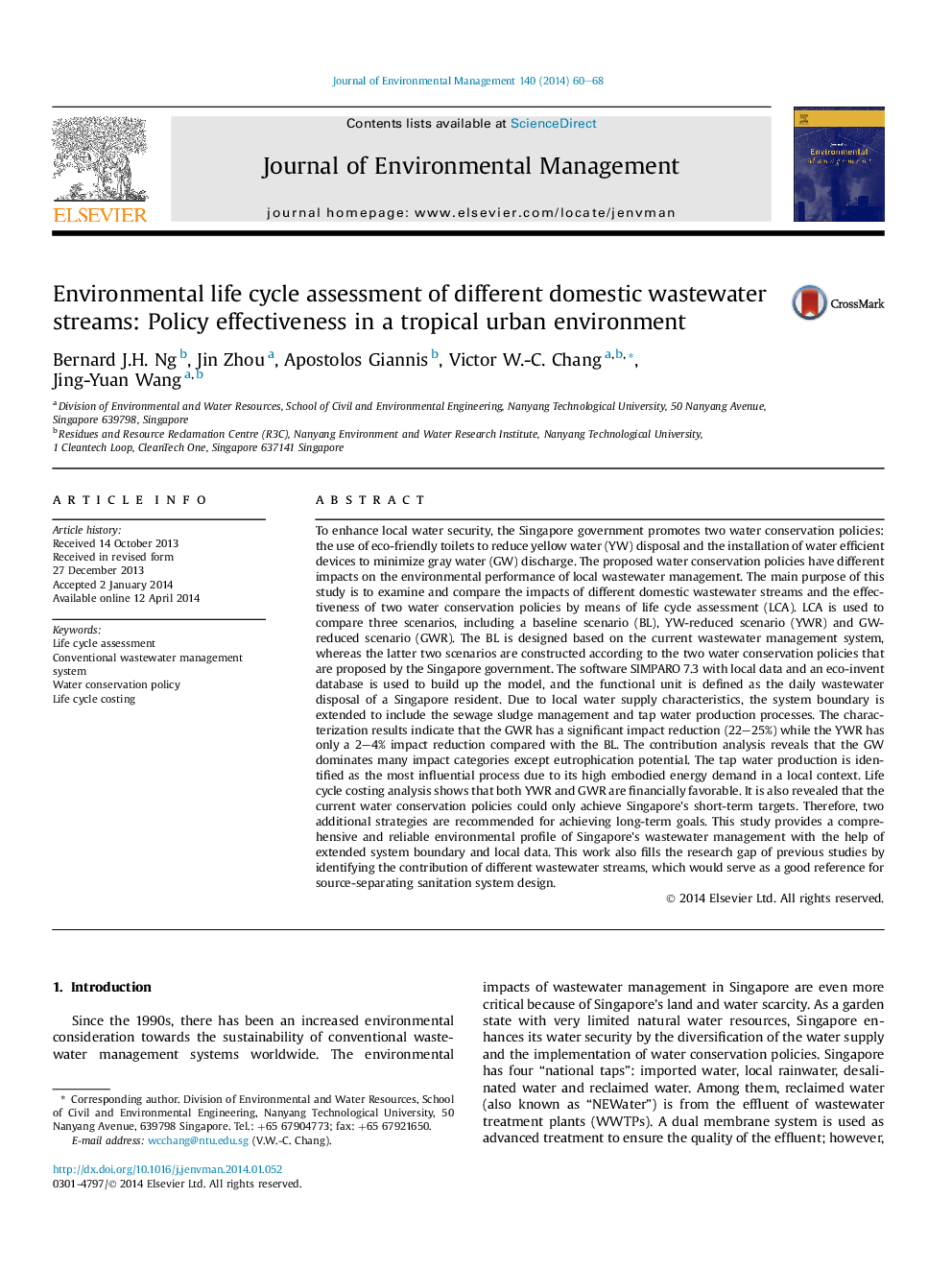| Article ID | Journal | Published Year | Pages | File Type |
|---|---|---|---|---|
| 7483791 | Journal of Environmental Management | 2014 | 9 Pages |
Abstract
To enhance local water security, the Singapore government promotes two water conservation policies: the use of eco-friendly toilets to reduce yellow water (YW) disposal and the installation of water efficient devices to minimize gray water (GW) discharge. The proposed water conservation policies have different impacts on the environmental performance of local wastewater management. The main purpose of this study is to examine and compare the impacts of different domestic wastewater streams and the effectiveness of two water conservation policies by means of life cycle assessment (LCA). LCA is used to compare three scenarios, including a baseline scenario (BL), YW-reduced scenario (YWR) and GW-reduced scenario (GWR). The BL is designed based on the current wastewater management system, whereas the latter two scenarios are constructed according to the two water conservation policies that are proposed by the Singapore government. The software SIMPARO 7.3 with local data and an eco-invent database is used to build up the model, and the functional unit is defined as the daily wastewater disposal of a Singapore resident. Due to local water supply characteristics, the system boundary is extended to include the sewage sludge management and tap water production processes. The characterization results indicate that the GWR has a significant impact reduction (22-25%) while the YWR has only a 2-4% impact reduction compared with the BL. The contribution analysis reveals that the GW dominates many impact categories except eutrophication potential. The tap water production is identified as the most influential process due to its high embodied energy demand in a local context. Life cycle costing analysis shows that both YWR and GWR are financially favorable. It is also revealed that the current water conservation policies could only achieve Singapore's short-term targets. Therefore, two additional strategies are recommended for achieving long-term goals. This study provides a comprehensive and reliable environmental profile of Singapore's wastewater management with the help of extended system boundary and local data. This work also fills the research gap of previous studies by identifying the contribution of different wastewater streams, which would serve as a good reference for source-separating sanitation system design.
Related Topics
Physical Sciences and Engineering
Energy
Renewable Energy, Sustainability and the Environment
Authors
Bernard J.H. Ng, Jin Zhou, Apostolos Giannis, Victor W.-C. Chang, Jing-Yuan Wang,
